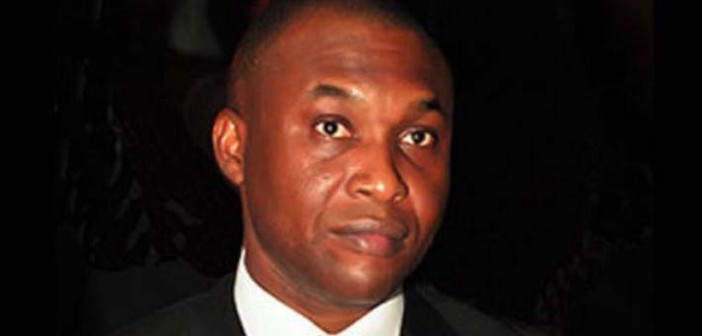
FROM WALTER UKAEGBU (SUN)
Chairman, Committee on Aeronautical Charges, Mr. Ahonsi Unuigbe, has frowned at the lean N500 million minimum capitalisation requirement for domestic airlines, stressing it barely covers the cost of effectively operating an aircraft and does not ensure a fleet size that allows for economies of scale.
This is even as the Minister of Aviation, Chief Osita Chidoka, has asked the committee to liaise with various heads of parastatals in the ministry to adopt the recommendations of the committee within one week.
The minister dropped the hint over the weekend when the Committee on Aeronautical Charges submitted its report to his office in Abuja. Chidoka explained that the aviation sector would not lack the political will to implement the recommendation of the committee, adding that the sector would ally itself with the international best practices.
Earlier on, Unuigbe, while submitting the report, stated that Nigeria’s aviation industry was plagued with multiple charges as there were over 50 different charges imposed by the three key parastatals, which were sometimes charged by the deferent agencies for the same services.
According to him, with respect to passenger ticket charges, the bases for some of these collections were not known and extremely arbitrary.
The committee analysed the basis of computation of passenger tickets for four domestic airlines, Arik, Dana, Medview and First Nation, he said, pointing out that the analysis showed that an amount ranging from 40 per cent to 65 per cent of the airfare were hidden as fuel surcharge, while the computation of the fuel surcharge is unknown to both passengers and government.
The committee chairman lamented that this cost element has been omitted by the airlines in the computation of both VAT and ticket sales charge, resulting in significant loss of revenue to the Federal Government.
“From the tickets analysed, some airline operators deliberately charge as high as 9 per cent of base fare as ticket sales charge as against the statutory 5 per cent (expected to be remitted to the Government through NCAA),” he stressed. Unuigbe also complained of poor service quality to passengers in the face of non-enforcement of the Passenger Bill of Rights as contained in the NCAA Act, which entitles passengers to a lot of rights in the event of any infraction.
He regretted that the minimum capitalisation requirement for domestic airlines was only N500 million, which at today’s exchange rate, barely covers the cost of operating one aircraft and therefore does not ensure a fleet size that allows for economies of scale, he argued.
The terms of reference of the committee were to collate all Nigeria aviation industry aeronautical charges, to benchmark with global best practices, especially with those countries with similar regional conditions.
Others include to determine the factors responsible for the disparity between the aeronautical (including passenger) charges and to give an opinion and/or make recommendations to government based on findings.
The chairman told the minister that the recommendation would go a long way in repositioning the competitiveness of the Nigeria aviation industry and reduce burden on passengers without compromising service delivery quality.
FRENCH VERSION
C’est alors que le ministre de l’Aviation, chef Osita Chidoka, ademandé au Comité d’assurer la liaison avec divers chefsd’entreprises parapubliques au ministère d’adopter lesrecommandations du Comité dans la semaine.
Le ministre a chuté l’indicateur au cours du week-end lorsque laCommission des redevances aéronautiques a présenté sonrapport à son bureau à Abuja. Aicha a expliqué que le secteur del’aviation ne manquerait pas de la volonté politique d’appliquer larecommandation de la Commission, ajoutant que le secteurpourrait s’allier avec les meilleures pratiques internationales.
Plus tôt sur, Unuigbe, tout en présentant le rapport, a déclaréqu’industrie aéronautique du Nigeria a été en proie avec desaccusations multiples car il n’ont a plus de 50 chefs d’accusationdifférents, imposées par les trois organismes parapublics clés, quisont parfois pratiqués par les agences différente pour les mêmesservices.
Selon lui, en ce qui concerne les frais de billet de passager, lesbases de certaines de ces collections n’étaient pas connus etextrêmement arbitraire.
Le Comité a analysé la base de calcul des billets des passagerspour quatre lignes aériennes domestiques, Arik, Dana, Medview etPremière Nation, dit-il, soulignant que l’analyse a montré qu’unmontant allant de 40 % à 65 % du billet d’avion étaient cachéscomme supplément pour le carburant, alors que le calcul dusupplément pour le carburant est inconnu pour les passagers et legouvernement.


